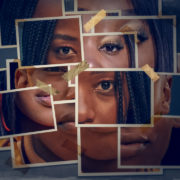No Signal [@theresnosignall] And The Re-emergence Of Black Radio In The UK [by @TochiChels]
![No Signal [@theresnosignall] And The Re-emergence Of Black Radio In The UK [by @TochiChels]](https://guap.co/wp-content/uploads/2020/05/LOGO-180x180.jpg)
There has been a Choice FM shaped hole in the hearts of Black radio listeners since it was replaced with Capital XTRA in 2013. Choice had been one of the only radio stations centring music of Black British origin, playing songs which were otherwise shunned by mainstream radio stations. Of course, Capital XTRA is still worth celebrating as it continues opportunities to artists, DJs and presenters within the UK’s Black music scene, but for a long time it has felt as though we can only have one Black radio station at one time. However, with the creation of live, Black owned stations such as No Signal, we are beginning to see the re-emergence of Black radio in the UK.
Now a distant (or likely non-existent) memory for many of us, in 1980, Dread Broadcasting Corporation (DBC), the first Black pirate radio, infiltrated the UK music scene. Nicknamed ‘rebel radio’ for both its contrast and protest to mainstream media, DBC sparked the wave of inspiration which aided the creation of household names such as KISS FM, a then pirate radio station.
Black artists and audiences found commercial radio stations were not catering to them, despite the music scene at the time being extremely popular. Whilst there had been a few songs with UK based Black singers reaching mainstream radio (imagine hearing Soul II Soul’s Back to Life debut on the radio though?) the demand for access to 24-hour Black radio was soaring.
Illegally, DJ’s began running all-day radio stations to ensure the emerging sounds of Black British artists were heard. The demand became so high, more pirate radio stations emerged, sparking clashes amongst them that even resulted in KISS having to hire security to ensure their safety when on air. Eventually, the option to legalise became available to several pirate radio stations by the Independent Broadcasting Authority, and in 1989 KISS FM won its license and became the first legal black radio station.
Whilst KISS FM no longer connotes that of solely Black music, it was among those which started the chain reaction that led to more licensed Black radio in the 1990’s. Listeners then saw the emergence of stations including Choice, Rinse and later Reprezent, welcoming genres pioneered by Black British artists such as grime, afro-bashment and garage.
Today, we are seeing the foundations Black British radio re-emerge and reinvent. Most recently, this has been done by No Signal – the live radio station curated by the DJ’s, producers and some of the makers of highly regarded event RECESS.
Innovating off the back of Timbaland and Swizz Beats’ Verzuz Instagram battles which had begun in March, No Signal began using their website arc for their live radio battles, #NS10v10. From Nicki Minaj versus Lil Kim to Kano versus Dizzee Rascal, #NS10v10 became a key moment both for the year and for Black British culture.
With sound clash-inspired game show topping the UK’s top trending tweets consistently times already, the impact No Signal is having on Black British culture and radio is indisputable. Interestingly, the role of the radio on the wider commercial culture is also clear, as following the heated and controversial battle between Mariah Carey and Beyoncé, Carey’s album E=MC2 reached number #1 on iTunes 12 years after its initial release.
Outside the commerciality of topping Twitter trends and pushing album streams, No Signal shines a light on the re-emergence of live, online radio. Whilst imitating the nostalgia of pirate radio stations with DJ interruptions and continuous shoutouts, the station also brings a fresh approach to the flaws of the old one. With quick responses to song asks, the station also offers listeners the ability to listen to missed battles via Soundcloud and to relive them through playlists, in collaboration with Spotify.
Additionally, No Signal uses newer forms of requesting such as Twitter direct messages and even voice notes, a stark change from having to text your shoutout to a six-digit number; but what No Signal, like its predecessors does best, is support the Black British community. It is no secret that the media industry is predominately white and more broadly has a diversity issue in the UK, but No Signal is helping break down these barriers.
Giving opportunities to upcoming artists and DJs to be heard, No Signal has created a space during a period where independent creatives are amongst those being hit the hardest. In moving from merely trying to get a seat at the table, to creating a space for us, No Signal reminds us of the power and impact Black creative talent can have when we build for ourselves too.
We are seeing a major shift in the UK’s Black music scene. With emerging genres and old ones mixing with new, there is no denying we are seeing a cultural change regarding what we define as Black music. As we continue to create spaces for our music by our curators, there is no better time for the re-emergence of Black radio in the UK than now.
Written By: Tochi Imo




![ZINO VINCI’S ‘FILTHY & DISGUSTING’EP BRINGS YOU TO THE CORE OF THE ARTIST [@ZinoVinci]](https://guap.co/wp-content/uploads/2023/10/Zino-4.jpg)




